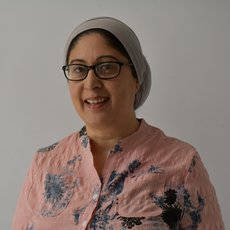By Sirea Jabar, Partnership Manager (Yorkshire & Humber, North East, Lancashire, Cumbria).
I don’t often speak publicly about my personal experiences, but during a recent event hosted by the North East Women’s Homelessness Alliance, I felt compelled to share something of my own journey — as a British Muslim woman of South Asian heritage who once, at 17, experienced homelessness.
It was a short period, but it had a lasting impact. I found myself moving through different types of services — some mixed gender, some culturally diverse, and some led by people who shared my background. It was only in those latter spaces that I felt something crucial: a sense of safety, recognition, and understanding. There was no need to explain the silences, the values, or the weight of cultural expectations — they were simply understood.
That experience, more than three decades ago, taught me something that remains deeply relevant today: identity matters. Homelessness is never a one-size-fits-all issue. Our experiences are shaped not just by housing need, but by the complex layers of who we are — our race, our gender, our faith, our culture, our past trauma.
Throughout my career — from working in Rotherham Youth Services supporting young people from South Asian backgrounds, to working with women experiencing domestic abuse and mental health challenges — I’ve seen how vital it is that services reflect and respond to people’s lived realities.
Today, in my role at Homeless Link, I support organisations across the country that are tackling homelessness in all its forms. One of the most powerful tools we have is the lens of intersectionality — a way of understanding that people’s needs are shaped by multiple, overlapping identities and systems of oppression. When we overlook this, we risk designing services that leave people behind — particularly women, people of colour, and people from faith communities.
This South Asian Heritage Month, I want to encourage homelessness services to ask difficult but important questions:
- Whose voices are missing in our decision-making spaces?
- Do our staff and leadership reflect the diversity of the communities we serve?
- Are we creating spaces where people feel truly seen, heard, and safe?
I’m proud of my Yorkshire roots and my South Asian heritage. I’m probably more Yorkshire than South Asian in how I speak, live, and see the world. My sense of faith (Islam) is strong — it anchors me and shapes my values. And yet, I can’t escape that my South Asian heritage has deeply influenced and shaped my experiences, both personally and professionally. I’m proud of the diversity within my own family — nearly a third of whom are white British. Our lives are complex and beautifully interconnected. The homelessness sector must reflect that complexity too — not just in words, but in action.
Let’s continue to build services that honour the full complexity of every individual. That means listening deeply, challenging assumptions, and creating spaces where no one feels they have to leave part of themselves at the door to get the support they need.

